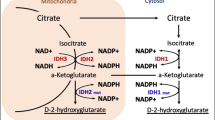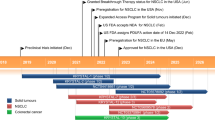Abstract
Background
Oncogenic K-Ras mutations in colorectal cancer (CRC) combined with APC mutations worsen CRC prognosis and lower drug effectiveness. Thus, inhibition of both Wnt/β-catenin and Ras-MAPK signaling may be a rational strategy to improve the treatment of this cancer.
Objective
To identify a novel compound inhibiting both Wnt/β-catenin and Ras-MAPK signaling in CRC.
Methods and Patients
We developed a two-part screening system consisting of analysis of TOP flash reporter cells and then potential toxicity effects on primary neural stem cells (NSCs). We then screened 2000 chemical compounds and tested efficacy of candidates against isogenic colon cancer cells harboring wild-type or mutant K-Ras. We employed immunohistochemistry and immunocytochemistry to determine marker signatures associated with development of disease phenotypes.
Results
We identified CPD0857, a compound that inactivates Wnt/β-catenin signaling and promotes ubiquitin-dependent proteasomal degradation of β-catenin and Ras proteins. CPD0857 effectively decreased proliferation and increased apoptosis of CRC cell lines, and overcame resistance of CRC harboring APC and K-Ras mutations to treatment with an EGFR monoclonal antibody (mAb). Moreover, CPD0857 attenuated invasiveness of highly migratory CRC cells in vitro. Accordingly, xenograft mice treated with CPD0857 showed slower tumor growth and significant decreases in both β-catenin and Ras protein expression.
Conclusions
CPD0857 may be a potential drug for treating aggressive CRC carrying mutations that aberrantly activate Wnt/β-catenin and Ras-ERK pathways.







Similar content being viewed by others
References
Siegel RL, Miller KD, Jemal A. Cancer statistics, 2018. CA-Cancer J Clin. 2018;68(1):7–30. https://doi.org/10.3322/caac.21442.
Cha PH, Cho YH, Lee SK, Lee J, Jeong WJ, Moon BS, et al. Small-molecule binding of the axin RGS domain promotes beta-catenin and Ras degradation. Nat Chem Biol. 2016;12(8):593–600. https://doi.org/10.1038/nchembio.2103.
Moon BS, Jeong WJ, Park J, Kim TI, Min-do S, Choi KY. Role of oncogenic K-Ras in cancer stem cell activation by aberrant Wnt/beta-catenin signaling. J Natl Cancer Inst. 2014;106(2):djt373. https://doi.org/10.1093/jnci/djt373.
Janssen KP, Alberici P, Fsihi H, Gaspar C, Breukel C, Franken P, et al. APC and oncogenic KRAS are synergistic in enhancing Wnt signaling in intestinal tumor formation and progression. Gastroenterol. 2006;131(4):1096–109. https://doi.org/10.1053/j.gastro.2006.08.011.
Feng Y, Bommer GT, Zhao J, Green M, Sands E, Zhai Y, et al. Mutant KRAS promotes hyperplasia and alters differentiation in the colon epithelium but does not expand the presumptive stem cell pool. Gastroenterology. 2011;141(3):1003-13e1–1003-13e10. https://doi.org/10.1053/j.gastro.2011.05.007.
Yoon J, Koo KH, Choi KY. MEK1/2 inhibitors AS703026 and AZD6244 may be potential therapies for KRAS mutated colorectal cancer that is resistant to EGFR monoclonal antibody therapy. Cancer Res. 2011;71(2):445–53. https://doi.org/10.1158/0008-5472.CAN-10-3058.
Yun J, Rago C, Cheong I, Pagliarini R, Angenendt P, Rajagopalan H, et al. Glucose deprivation contributes to the development of KRAS pathway mutations in tumor cells. Science. 2009;325(5947):1555–9. https://doi.org/10.1126/science.1174229.
Jeong WJ, Yoon J, Park JC, Lee SH, Kaduwal S, Kim H, et al. Ras stabilization through aberrant activation of Wnt/beta-catenin signaling promotes intestinal tumorigenesis. Sci Signal. 2012;5(219):ra30. https://doi.org/10.1126/scisignal.2002242.
Koo KH, Jeong WJ, Cho YH, Park JC, Min do S, Choi KY. K-Ras stabilization by estrogen via PKCdelta is involved in endometrial tumorigenesis. Oncotarget. 2015;6(25):21328–40. https://doi.org/10.18632/oncotarget.4049.
Lee SK, Jeong WJ, Cho YH, Cha PH, Yoon JS, Ro EJ, et al. beta-Catenin-RAS interaction serves as a molecular switch for RAS degradation via GSK3beta. EMBO Rep. 2018. https://doi.org/10.15252/embr.201846060.
Jeon SH, Yoon JY, Park YN, Jeong WJ, Kim S, Jho EH, et al. Axin inhibits extracellular signal-regulated kinase pathway by Ras degradation via beta-catenin. J Biol Chem. 2007;282(19):14482–92. https://doi.org/10.1074/jbc.M611129200.
Park KS, Jeon SH, Kim SE, Bahk YY, Holmen SL, Williams BO, et al. APC inhibits ERK pathway activation and cellular proliferation induced by RAS. J Cell Sci. 2006;119(Pt 5):819–27. https://doi.org/10.1242/jcs.02779.
Efferth T. Signal transduction pathways of the epidermal growth factor receptor in colorectal cancer and their inhibition by small molecules. Curr Med Chem. 2012;19(33):5735–44.
Dozmorov MG, Azzarello JT, Wren JD, Fung KM, Yang Q, Davis JS, et al. Elevated AKR1C3 expression promotes prostate cancer cell survival and prostate cell-mediated endothelial cell tube formation: implications for prostate cancer progression. BMC Cancer. 2010;10:672. https://doi.org/10.1186/1471-2407-10-672.
Song L, Xiong H, Li J, Liao W, Wang L, Wu J, et al. Sphingosine kinase-1 enhances resistance to apoptosis through activation of PI3K/Akt/NF-kappaB pathway in human non-small cell lung cancer. Clin Cancer Res. 2011;17(7):1839–49. https://doi.org/10.1158/1078-0432.CCR-10-0720.
Jiao M, Nan KJ. Activation of PI3 kinase/Akt/HIF-1alpha pathway contributes to hypoxia-induced epithelial-mesenchymal transition and chemoresistance in hepatocellular carcinoma. Int J Oncol. 2012;40(2):461–8. https://doi.org/10.3892/ijo.2011.1197.
Vredeveld LC, Possik PA, Smit MA, Meissl K, Michaloglou C, Horlings HM, et al. Abrogation of BRAFV600E-induced senescence by PI3K pathway activation contributes to melanomagenesis. Genes Dev. 2012;26(10):1055–69. https://doi.org/10.1101/gad.187252.112.
Wang D, Chen J, Chen H, Duan Z, Xu Q, Wei M, et al. Leptin regulates proliferation and apoptosis of colorectal carcinoma through PI3K/Akt/mTOR signalling pathway. J Biosci. 2012;37(1):91–101.
Christgen M, Noskowicz M, Schipper E, Christgen H, Heil C, Krech T, et al. Oncogenic PIK3CA mutations in lobular breast cancer progression. Gene Chromosome Canc. 2013;52(1):69–80. https://doi.org/10.1002/gcc.22007.
Zhuang Z, Zhao X, Wu Y, Huang R, Zhu L, Zhang Y, et al. The anti-apoptotic effect of PI3K-Akt signaling pathway after subarachnoid hemorrhage in rats. Ann Clin Lab Sci. 2011;41(4):364–72.
Malinowsky K, Nitsche U, Janssen KP, Bader FG, Spath C, Drecoll E, et al. Activation of the PI3K/AKT pathway correlates with prognosis in stage II colon cancer. Br J Cancer. 2014;110(8):2081–9. https://doi.org/10.1038/bjc.2014.100.
Bahrami A, Khazaei M, Hasanzadeh M, ShahidSales S, Joudi Mashhad M, Farazestanian M, et al. Therapeutic potential of targeting PI3K/AKT pathway in treatment of colorectal cancer: rational and progress. J Cell Biochem. 2018;119(3):2460–9. https://doi.org/10.1002/jcb.25950.
Zhang J, Roberts TM, Shivdasani RA. Targeting PI3K signaling as a therapeutic approach for colorectal cancer. Gastroenterol. 2011;141(1):50–61. https://doi.org/10.1053/j.gastro.2011.05.010.
Jiang Z, Cao Q, Dai G, Wang J, Liu C, Lv L, et al. Celastrol inhibits colorectal cancer through TGF-beta1/Smad signaling. OncoTargets Ther. 2019;12:509–18. https://doi.org/10.2147/OTT.S187817.
Guo X, Ramirez A, Waddell DS, Li Z, Liu X, Wang XF. Axin and GSK3- control Smad3 protein stability and modulate TGF- signaling. Genes Dev. 2008;22(1):106–20. https://doi.org/10.1101/gad.1590908.
Acknowledgements
We thank Dr. Kang-Yell Choi for insightful discussions (Department of Biotechnology, College of Life Science and Biotechnology, Yonsei University, Seoul) for technical advice. Byoung-San Moon and Heeyeong Cho were supported by the Korea Research Institute of Chemical Technology (KRICT) (SI2031-50)
Author information
Authors and Affiliations
Corresponding author
Ethics declarations
Funding
This work was supported by the Korea Research Institute of Chemical Technology (KRICT) (SI2031-50).
Conflict of interest
The authors Jung Kyu Choi, Heeyeong Cho, and Byoung-San Moon declare that they have no conflicts of interest that might be relevant to the contents of this manuscript.
Ethics approval
Not applicable.
Consent to participate
Not applicable.
Consent for publication
Not applicable.
Availability of data and material
Not applicable.
Code availability
Not applicable.
Author contributions
JKC and B-SM designed and performed the all experiments. HC supported materials, edited the manuscript and performed data analysis. B-SM wrote the manuscript and organized the project.
Electronic supplementary material
Below is the link to the electronic supplementary material.
Rights and permissions
About this article
Cite this article
Choi, J.K., Cho, H. & Moon, BS. Small Molecule Destabilizer of β-Catenin and Ras Proteins Antagonizes Growth of K-Ras Mutation-Driven Colorectal Cancers Resistant to EGFR Inhibitors. Targ Oncol 15, 645–657 (2020). https://doi.org/10.1007/s11523-020-00755-5
Published:
Issue Date:
DOI: https://doi.org/10.1007/s11523-020-00755-5




